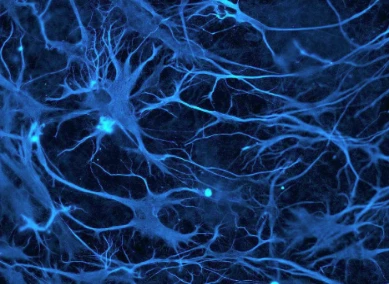Studies reveal that SIRT6 deficiency can block the differentiation of human neural stem cells into neurons

Studies reveal that SIRT6 deficiency can block the differentiation of human neural stem cells into neurons

Copyright © iCell Bioscience Inc, Shanghai 2018-2019
Aging is a process in which the physiological functions of the body gradually degenerate over time, and is the greatest risk factor for chronic diseases such as neurodegenerative diseases, atherosclerosis, diabetes and malignant tumors.
Researchers from the Institute of Zoology and Biophysics of the Chinese Academy of Sciences, for the first time, combined non-human primate models, human stem cell models and gene editing techniques to reveal key pathways for primate development and longevity regulation.

After three years of hard work, the researchers achieved the first systematic knockout of the "longevity protein" SIRT6 in non-human primates, thus obtaining the world's first cynomolgus monkey model with specific longevity gene knockout. SIRT6 is considered to be the classic "longevity protein". However, almost all of the evidence so far has been derived from mice and other low-level organisms, and it is unclear whether SIRT6 can perform similar functions in primates. Significantly different from the accelerated aging phenotype exhibited by SIRT6 knockout mice, SIRT6 knockout cynomolgus monkeys die within hours of birth.
A number of analyses showed that SIRT6 knockout cynomolgus monkeys did not show an accelerated aging phenotype, but showed severe systemic developmental delay. In the brain, muscle and various other organ tissues of the newborn SIRT6 knockout monkey, they showed obvious embryonic immature cell and molecular characteristics.
In addition, researchers using human stem cell models have shown that SIRT6 deficiency can also block the differentiation of human neural stem cells into neurons. Further molecular studies have found that the lack of SIRT6 causes abnormal up-regulation of long-chain non-coding RNA H19 expression in primate neural precursor cells, leading to brain developmental delay.
This study reveals for the first time a key molecular switch that regulates the prenatal developmental process of primates and provides an important model system for studying human prenatal stunting syndrome. In addition, the study reveals for the first time the vast differences in aging regulatory pathways between primates and rodents, and lays an important foundation for the development of mechanisms for human development and aging, as well as interventions for related diseases.
 Loading ....
Loading ....
